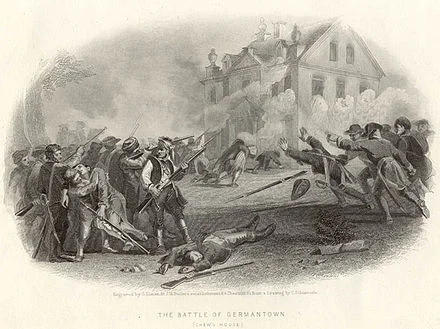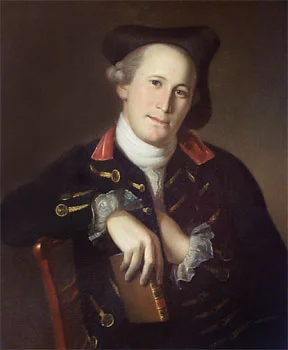Nathaniel Gist's Additional Continental Regiment
Nathaniel Gist was a pioneer on the Kentucky frontier who, despite having his loyalty questioned, led a regiment in the Continental Army.
Gist, who’s father had been close with George Washington, spent a good deal of time with the Cherokee Nation and even attempted to recruit them to fight alongside the Americans.
Nathaniel Gist
Nathaniel Gist was born to be a frontiersman.
By his early 20’s, he was serving in the French and Indian War as a scout. His direct superior was his father, Christopher, who was friends with a young George Washington (the leader of the colonial militia).
After the war, Nathaniel set off for Kentucky where he traded with the Cherokee Nation. He spent time travelling with Daniel Boone, contributing just as much as his more famous associate to the development of settlements west of the Appalachian Mountains.
As the western frontier was a hostile place, Gist remained in the Virginia Militia. He served as a Captain in Adam Stephen’s Independent Regiment.
Loyalties Questioned
Gist was soon chosen as Deputy Superintendent of Indian Affairs and oversaw the region surrounding Kentucky. Keep in mind, this was technically a position with the British Government.
When the Revolutionary War broke out, Nathaniel was accused of being a Loyalist as he worked for the British and communication to the frontier was slow. A small force was sent west to fight the Cherokees and were given a warrant to arrest several men.
One of these men was Nathaniel Gist.
When the Americans arrived, Gist met them and claimed that he was one of the only Patriots in Kentucky. As such, he had no choice but to play along with the Loyalists in the area.
Although most of the soldiers wanted him taken prisoner, William Christian, who led the expedition, believed Gist and brought him back to Virginia. Governor Patrick Henry also believed Gist (who, again, had a close association with now-General Washington) and permitted his release.
Gist’s Additional Continental Regiment
Washington soon reached out to Gist and appointed him a Colonel in the Continental Army.
Nathaniel was tasked with assembling a regiment of five hundred men, plus also moving to recruit 500 Cherokee. The hope was that if the Cherokee could fight with the Americans, future tensions could be eased.
Nathaniel assembled Gist’s Additional Continental Regiment and led his soldiers through several battles in the Middle Colonies. He then traveled to South Carolina where he was captured in the disastrous Siege of Charleston.
When he was released a year later, he retired from the Continental Army.
Kentucky
Nathaniel Gist was granted a gigantic swath of land for his service in the Revolution. Eventually, he moved to this property in Kentucky after it had been granted Statehood.
Interestingly, historians cannot seem to agree on when Gist died or where he was buried, though most believe he passed away in 1812.
This is especially curious as we know a good deal about his ancestors, notably his grandson, Montgomery Blair, who served as Postmaster General for Abraham Lincoln during the Civil War.
If you’d like to read about Gist’s cousin, Mordecai, who was a Brigadier General in the Continental Army, check out this article:
Want to get fun American Revolution articles straight to your inbox every morning?
Subscribe to my email list here.
You can also support this site on Patreon by clicking here.
Want to read about life on the Kentucky frontier during the American Revolution?
‘The Life and Legend of an American Pioneer’ is about Daniel Boone, not Nathaniel Gist. However, it gives a great perspective on what life was like during this special time in history.
If you’d like a copy for your very own you can through the Amazon affiliate link below (you’ll support this site, but don’t worry, Amazon pays me while your price stays the same).






